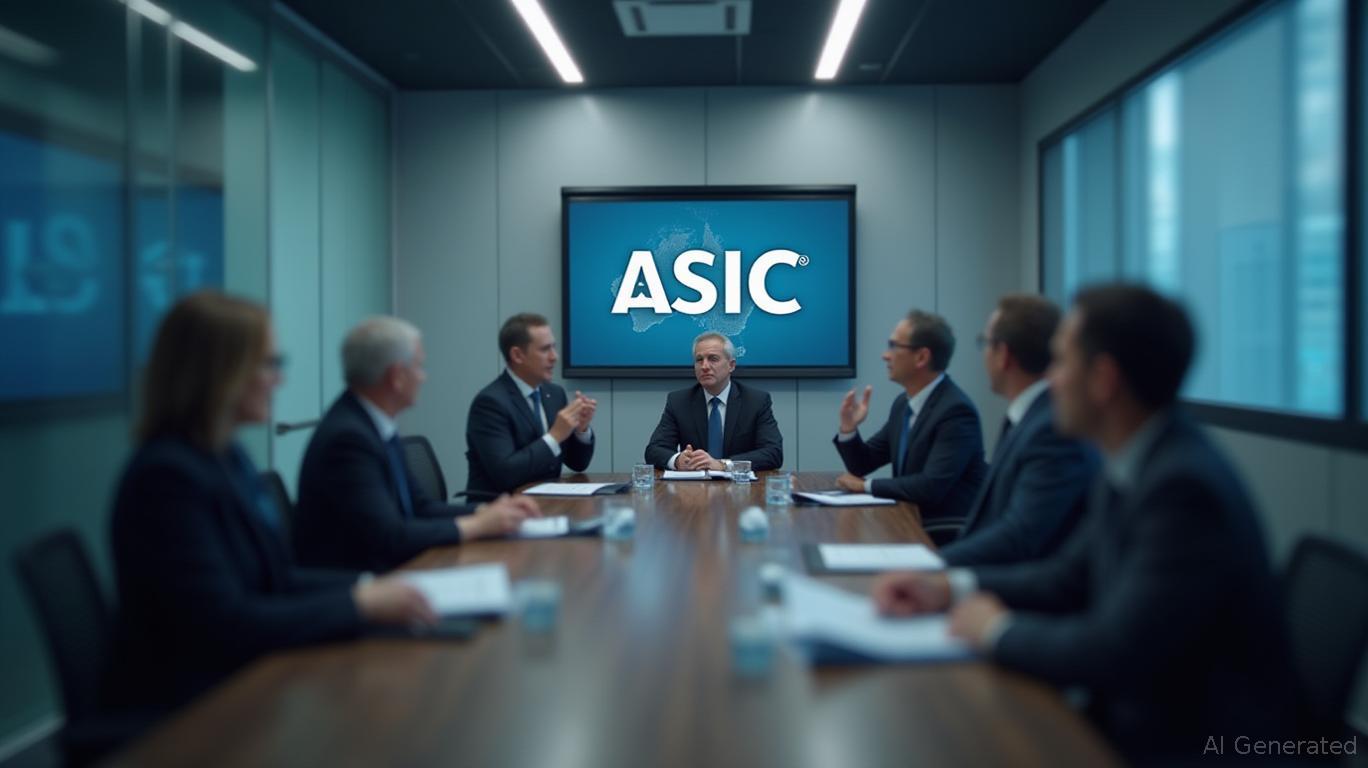OpenAI's Shift to Profit: Will Nonprofit Governance Endure with Microsoft's $135B Investment?
- OpenAI completes for-profit restructuring, granting Microsoft a 27% stake valued at $135B while retaining nonprofit oversight via a $130B equity stake. - Microsoft secures extended IP rights to OpenAI models until 2030 or AGI verification, but loses exclusivity on consumer hardware and cloud infrastructure. - The deal includes $250B in Azure cloud purchases by OpenAI and resolves legal disputes, including Elon Musk's $100B acquisition bid and regulatory objections. - Critics question the nonprofit founda
OpenAI Finalizes For-Profit Shift, Awards
OpenAI has completed its move to a for-profit structure, reorganizing as a public benefit corporation (PBC) and granting Microsoft a substantial equity share. Announced on October 28, 2025, this change forms the OpenAI Group PBC, which is overseen by the nonprofit OpenAI Foundation. The foundation now holds $130 billion in equity in the for-profit segment. Microsoft, a key investor and partner, has acquired a 27% stake valued at $135 billion, signaling a major transformation in OpenAI’s leadership and business approach, according to

The updated agreement, outlined in a joint release from both organizations, redefines their partnership. Microsoft will continue to access OpenAI’s technology through 2032, including models developed after achieving artificial general intelligence (AGI)—defined as systems exceeding human performance in most economically significant tasks. However, any AGI announcement must now be validated by an independent panel of experts, introducing oversight to the ambiguous AGI concept, as reported by
A major aspect of the agreement is OpenAI’s pledge to spend $250 billion on Azure cloud services, ensuring Microsoft remains a primary infrastructure provider even though it no longer has the first right to future compute contracts. This deal follows years of collaboration, with Microsoft investing more than $13 billion in OpenAI since 2019, as Fortune noted. The partnership has allowed Microsoft to embed OpenAI’s technology in products like Copilot, while Azure has become a vital revenue source for OpenAI, which has invested billions in cloud infrastructure during its rapid growth, according to
Regulatory approval was a significant challenge in the restructuring. Delaware Attorney General Kathy Jennings gave the green light, issuing a “Statement of No Objection” after lengthy talks with OpenAI and California officials, The Verge reported. The process also settled a lawsuit from Elon Musk, who had tried to block the transition and briefly offered $100 billion to buy OpenAI, The Guardian reported.
The new arrangement seeks to balance OpenAI’s commercial goals with its nonprofit mission. The OpenAI Foundation intends to dedicate $25 billion to healthcare, disease research, and AI safety, with more funds tied to future valuation targets, Fortune reported. Still, some critics argue the nonprofit’s control over the for-profit side is “superficial,” pointing to a lack of evidence that it has ever enforced its principles on business operations, Fortune noted.
Industry experts point out the strategic benefits for both sides. Microsoft’s share offers potential gains if OpenAI achieves its growth targets, and the extended IP rights guarantee ongoing access to advanced AI models. For OpenAI, the new structure makes it easier to attract investment and generate profits while maintaining an appearance of nonprofit oversight. The deal also allows both companies to pursue AGI independently—Microsoft can now work on AGI with other partners, and OpenAI can use other cloud providers for non-API products, as The Verge reported.
As competition in AI accelerates, the partnership between OpenAI and Microsoft remains a driving force in the field. With OpenAI’s valuation at $500 billion and Azure as a crucial infrastructure backbone, their alliance highlights the mutually beneficial relationship between AI innovation and cloud technology in shaping the future, Fortune reported.
Disclaimer: The content of this article solely reflects the author's opinion and does not represent the platform in any capacity. This article is not intended to serve as a reference for making investment decisions.
You may also like
BNB News Update: x402b Connects Decentralized Transactions with Corporate Compliance, Reaches $810 Million Market Value
- x402b protocol, an upgraded web3 payment standard by Pieverse, surged to $810M market cap in 24 hours on BNB Chain. - Protocol introduces gasless EIP-3009 transactions and auditable receipts via BNB Greenfield, addressing enterprise adoption barriers. - BNB Chain's DAAs reached 2.4M in Sept 2025, outpacing Ethereum's 3M, while Pieverse processes 500K+ weekly transactions. - UK FCA's 45% crypto AML approval and iDenfy's compliance tools reinforce regulatory readiness for protocols like x402b. - Pieverse p

Solana News Update: The Inaugural TAO Staked ETP Connects Conventional Finance with AI-Powered Blockchain Advancements
- Safello and Deutsche Digital Assets launch STAO, the first Bittensor (TAO) Staked ETP on SIX Swiss Exchange, offering regulated AI blockchain exposure with staking rewards. - The ETP combines cold-storage TAO token backing, automatic staking yield reinvestment, and a 1.49% max fee, simplifying access to decentralized AI infrastructure. - Bittensor's 70% staked TAO tokens enhance network security, while global crypto ETP growth (e.g., Hong Kong SOL ETF, Bitwise BSOL) signals institutional adoption trends.

ASIC Achieves Strong Profit Growth Despite Challenges in the E&S Market
- Ategrity (ASIC) reported 30% YOY premium growth in Q3 2025, driven by 70% higher submissions and a 78% surge in adjusted net income to $22.8M. - The insurer expanded its distribution network by 25% and launched digital brokerage and real estate-focused products to boost operational efficiency. - Despite gains, ASIC faces E&S market challenges including property pricing pressures, shrinking "nano accounts," and conservative loss reserve strategies. - CEO Cohen emphasized rate hikes in small-to-medium prop

CVS Sheds Low-Performing Assets, Raises Profit Outlook
- CVS Health's Q3 2025 earnings ($1.60/share) and $102.9B revenue exceeded forecasts by $0.24/share and $4.07B, prompting third consecutive guidance hikes to $6.55-$6.65 adjusted EPS. - Aetna's improved medical benefit ratio (92.8% vs 95.2%) and Rite Aid pharmacy integration drove 11.7% segment growth, while Oak Street Health's $5.7B impairment led to 16 clinic closures by 2026. - Despite goodwill charges, $7.2B year-to-date operating cash flow reinforced resilience, with shares up 30% since CEO Joyner's 2
